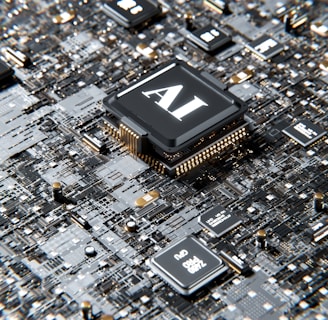What Is The Simplest Way to Explain AI?
Artificial Intelligence (AI) has rapidly evolved from a futuristic concept to a central element of our everyday lives. But what exactly is it, where did it all begin, and where is it heading? This article explores the fascinating journey of AI, its current advancements, and what we can expect in the future.
What Is AI?
Defining Artificial Intelligence
At its core, Artificial Intelligence refers to the simulation of human intelligence in machines programmed to think and learn like humans. AI encompasses various technologies, including machine learning, natural language processing, and robotics, enabling machines to perform tasks that typically require human intelligence, such as recognizing speech, making decisions, and solving complex problems.
One of the most significant advancements in AI is machine learning, which allows systems to learn from data and improve their performance over time without being explicitly programmed. By analyzing large datasets, machine learning algorithms can identify patterns and make predictions, leading to more accurate outcomes in applications ranging from medical diagnostics to financial forecasting. This ability to adapt and improve is transforming industries, enabling businesses to leverage data for more informed decision-making.
Natural language processing (NLP) is another vital component of AI that focuses on the interaction between computers and humans through language. NLP technologies are behind the virtual assistants we use daily, such as Siri and Alexa, which can understand and respond to voice commands. Additionally, NLP enables chatbots to provide customer support and automated translation services to break down language barriers. As AI continues to evolve, the potential applications of these technologies will expand, further enhancing our interaction with machines and streamlining various tasks in our everyday lives.
The Origins of AI
A Brief History
The concept of AI has roots stretching back to ancient mythology, but its modern form began taking shape in the mid-20th century. The term "artificial intelligence" was first coined by John McCarthy in 1956 during a conference at Dartmouth College. This period marked the birth of AI as a formal field of study, driven by pioneering work from researchers like Alan Turing, who proposed the famous Turing Test to assess a machine's ability to exhibit intelligent behavior.
AI Today: Current Developments
Advancements and Applications
In recent years, AI has made significant strides. Innovations in machine learning, particularly deep learning, have led to breakthroughs in natural language processing, image recognition, and autonomous systems. AI-powered technologies, such as virtual assistants (e.g., Siri, Alexa), recommendation algorithms on streaming platforms, and advanced data analytics tools, are now commonplace.
Moreover, AI is being increasingly integrated into various industries, including healthcare for diagnostic purposes, finance for fraud detection, and automotive for self-driving vehicles. The continuous development of AI technologies is enhancing efficiency, accuracy, and personalization across different sectors.
The Future of AI
What Lies Ahead
Looking forward, the future of AI holds tremendous potential. Emerging trends include the advancement of general artificial intelligence (AGI), which aims to create machines with generalized human cognitive abilities. Additionally, ethical considerations and regulatory frameworks will become increasingly important as AI systems become more pervasive and influential.
AI research is also focusing on enhancing explainability and transparency, addressing biases in algorithms, and improving human-AI collaboration. Innovations such as quantum computing may further accelerate AI capabilities, leading to new applications and breakthroughs
Artificial Intelligence has come a long way since its inception, transforming how we interact with technology and shaping various aspects of modern life. From its historical roots to today’s advanced applications and future possibilities, AI continues to push boundaries and redefine what is possible. Staying informed about AI developments helps us better understand and navigate this rapidly evolving field and anticipate to see more from AI from here on out.






